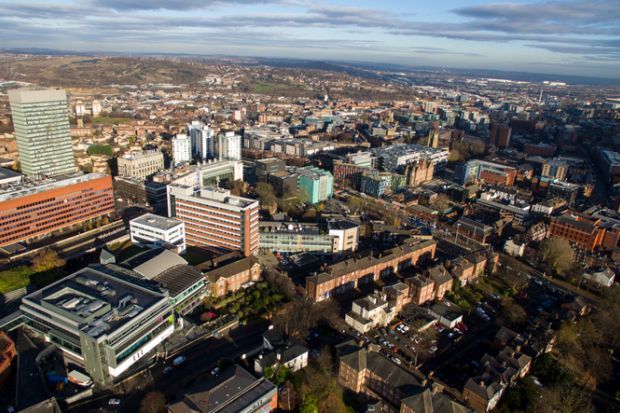Almost everyone is in favour of social mobility. The story of the underdog overcoming challenges before tasting success echoes down the generations – from Dick Whittington to Barack Obama. In the United States, it’s locked into national folklore – "from log cabin to White House" – but scratch a little bit deeper, and the idea of social mobility is more complicated.
It can be seen in terms of "levelling the playing field" to make competition fairer. It can be seen in terms of an elevator to the top, whisking the talented but deprived to the most selective universities or best occupations. It can be seen, as the UK prime minister has seen it, as helping the "just about managing" families who want a better life for their children.
It can be seen in the context of a vast game of snakes and ladders: if some are going to rise, others must fall. It’s partly because this almost universally acknowledged good thing means such different things to different people that the social policy arguments around social mobility range so much.
Today's "State of the Nation" report from Alan Milburn’s Social Mobility Commission lands in the middle of the debate about social mobility. And what it reveals is stark: the UK has an appalling social mobility problem, which is getting worse not better, in an increasingly unequal society.
It highlights the widening geographical divide between London and everywhere else – but in particular remote rural or coastal areas and older industrial towns with a mining or manufacturing legacy. As vice-chancellor of Sheffield Hallam, a university that serves many communities within former industrial areas, this is a particular concern to me.
The findings and recommendations from the commission provide challenges for policymakers in Whitehall. But the issue is far too important to be left to them. If this is, as Milburn suggests, a social challenge, then civil society needs to rise to it as well as government.
My own university is determined to play its part.
Across South Yorkshire, there are excellent schools and outstanding teachers, but the data tell a challenging story: young people are less likely to achieve good GCSEs, less likely to remain in education and have fewer life opportunities than their peers in other parts of the country. Some, if not all, of the building blocks of a more socially just society are in our hands.
Like many other universities, widening access to higher education and providing opportunities for our students to succeed regardless of their background is deep in our culture – for me, and many of my colleagues, ourselves the first generation to benefit from a university education, widening access means encouraging people like us into university. But we want to go further.
With this mind we recently launched South Yorkshire Futures – a social mobility partnership focused on improving educational attainment and raising aspiration across the entire region. We believe it is the largest and most ambitious engagement of a university with the school system anywhere in the country, hence it is cited in today's report as a key case study.
It runs from early years through to the end of study and the transition to work, with the university providing a strategic framework to help other parties collaborate and focus on relevant targets. This makes it easier to understand regional needs.
In early years, the programme focuses on parenting support and knowledge exchange for pre-school settings. At school, the programme guarantees a minimum university outreach offer for all schools and colleges – no matter how isolated they are. It also seeks to address teacher shortages through a South Yorkshire-wide approach to recruitment, initial teacher training and early career support.
Finally, at the transition stage, the programme helps to build young people's social capital and employability skills. In addition, this autumn, we launched a pilot programme that will help over 160 disadvantaged pupils to secure degree apprenticeships – offering specialist advice, support and working with major employers.
South Yorkshire Futures launched this summer, but early successes include better connections between local stakeholders and new conversations with charities that can deliver required services.
As the Commission recommends, there are fundamental reforms needed to Britain’s education system, local economies and housing and labour markets to tackle social mobility. However, we shouldn't let the scale of the challenge dampen our ambitions.
Around the world, there is evidence that system improvement at a regional level can work. But that depends on some key building blocks being in place: ambition, honesty about the challenges, a commitment to succeed and a willingness to cooperate.
These ingredients, along with practical solutions at nursery, school, college, university and work level, can make a lasting difference. We cannot, of course, solve all of the problems – but we can make a difference.
Chris Husbands is vice-chancellor of Sheffield Hallam University.
Register to continue
Why register?
- Registration is free and only takes a moment
- Once registered, you can read 3 articles a month
- Sign up for our newsletter
Subscribe
Or subscribe for unlimited access to:
- Unlimited access to news, views, insights & reviews
- Digital editions
- Digital access to THE’s university and college rankings analysis
Already registered or a current subscriber? Login








